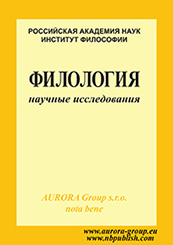Translation
Reference:
Yang, C. (2025). Titles of Traditional Chinese Musical Instruments in Russian Concert Posters : Methods of Formal and Semantic Adaptation. Philology: scientific researches, 5, 1–15. https://doi.org/10.7256/2454-0749.2025.5.73729
Abstract:
In recent years, cultural ties between different nations have been expanding. Concerts of Chinese national music are often held in Russian cities. Posters are distributed both through traditional methods and online. The question arises about which linguistic means allow Russian-speaking readers to learn about a new cultural experience and to make the description of Chinese musical tradition understandable and appealing. The subject of this study is the examination of the ways information about musical instruments that are exotic for the Russian culture is conveyed. It investigates the reasons for choosing lexical units to denote the instruments, as well as the formal and semantic adaptation pathways of borrowed lexemes in the Russian language. The material consists of vocabulary naming Chinese national instruments in concert posters written in Russian. The material was collected through a method of continuous sampling. Lexicographic, comparative, and statistical methods were used in the analysis. The article presents an analysis from different perspectives: it explores the types of conveying the sound of Chinese musical terms in Russian, searches for equivalents in Russian musical terminology, and examines the connotation of the titles of Chinese concerts. The novelty of the approach lies in the choice of material. Involving concert posters of Chinese national music allowed for a comprehensive analysis based on musicology and linguistics data. The investigation of the text and visual elements of the concert poster allowed for the following conclusions: the pragmatics of the national music concert poster lies in the fact that the text and visual elements not only convey precise information about the concert but also invite a wide audience of music lovers, arousing interest among Russian listeners. The names of Chinese instruments are given in transcription according to the Pallady system, and the processes of Russification are presented minimally. Units that, according to dictionaries, inflect, may appear in posters as uninflected, which also indicates the absence of Russification. The use of inaccurate equivalents for interpreting the meanings of exoticisms provides listeners with a general idea of the instrument but does not allow for a comprehensive and in-depth understanding of the character of the music being performed.
Keywords:
calque, interpretation, exoticism, Russification, borrowing, musical terminology, non-equivalent vocabulary, transliteration, transcription, connotation
 This work is licensed under a Creative Commons Attribution-NonCommercial 4.0 International License.
This work is licensed under a Creative Commons Attribution-NonCommercial 4.0 International License.
 Eng
Eng













 © 1998 – 2025 Nota Bene. Publishing Technologies. NB-Media Ltd.
© 1998 – 2025 Nota Bene. Publishing Technologies. NB-Media Ltd.




